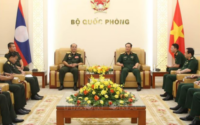G7 warns China against “economic coercion” 2023
The Group of Seven has pledged to work together to combat economic coercion in response to a “worrying increase” in trade-weaponizing nations.
In a statement on economic security issued on the second day of the G7 summit in Japan, the club of affluent democracies stated that they would increase resilience “by reducing vulnerabilities and combating malign practices that exploit and reinforce them.”
The G7 statement published Saturday afternoon did not mention China by name, but Western officials have become increasingly vocal about China’s use of trade restrictions in political disputes.
“The world has witnessed an alarming increase in incidents of economic coercion that seek to exploit economic vulnerabilities and dependencies and undermine the foreign and domestic policies and positions of G7 members and their global partners,” the G7 leaders stated.

Western officials are increasingly criticizing Beijing’s trade restrictions in political disagreements.
“We will collaborate to ensure that attempts to weaponize economic dependencies by compelling G7 members and our partners, including small economies, to comply and conform fail and are met with consequences.”
China’s use of punitive trade measures has been one of the most closely scrutinized topics at the G7 summit, amidst demands for concerted action against Beijing.
In recent years, trade restrictions have been imposed on Japan, South Korea, Australia, and Lithuania due to disputes with Beijing over issues spanning from the origins of the COVID-19 pandemic to Taiwan.
In a communiqué issued later on Saturday, the G7 leaders outlined a specific strategy for coping with China.
“We are not decoupling or inwardly focusing. In addition, we recognize that economic resilience necessitates de-risking and diversification, as stated in the communiqué. A rising China that adheres to international norms would be of global importance.
U.S. Ambassador to Japan Rahm Emanuel stated on Tuesday that the G7 was “developing the tools to deter and defend against China’s economic intimidation and retaliation.”
Former British Prime Minister Liz Truss advocated for the formation of a “economic NATO” earlier this year, arguing that the international community should be prepared to impose severe sanctions on China if Beijing makes aggressive moves towards Taiwan’s self-determination.
Due to their heavy reliance on Chinese trade, Japan and European members are viewed as more hesitant than the United States to provoke Beijing.



